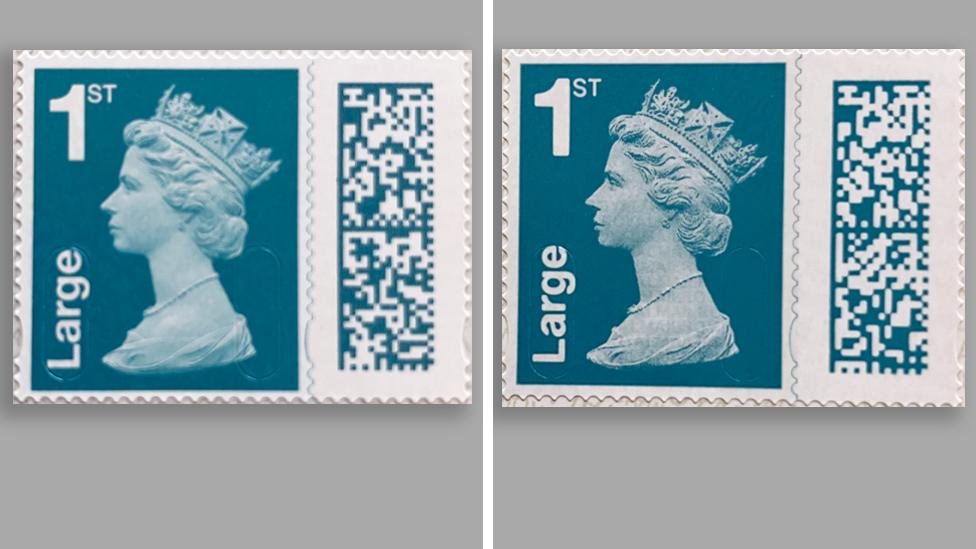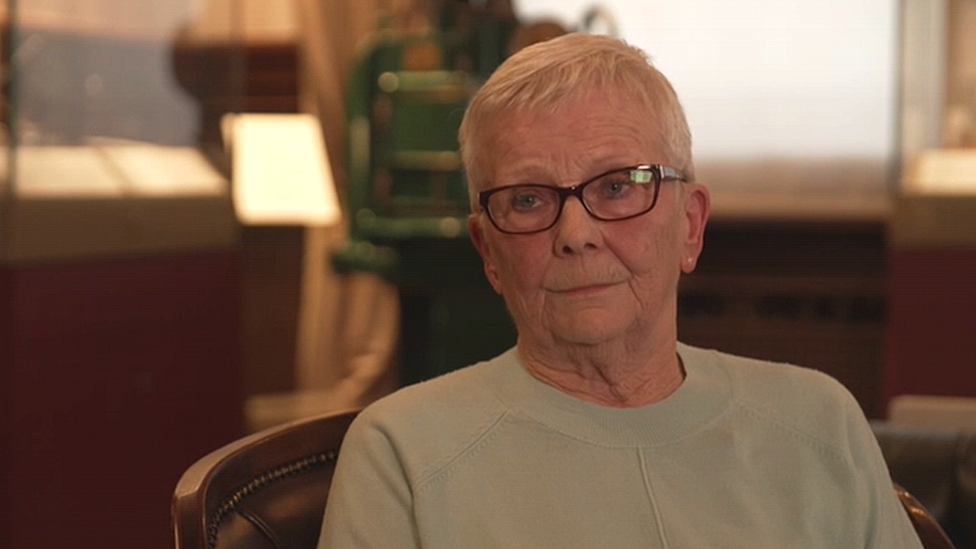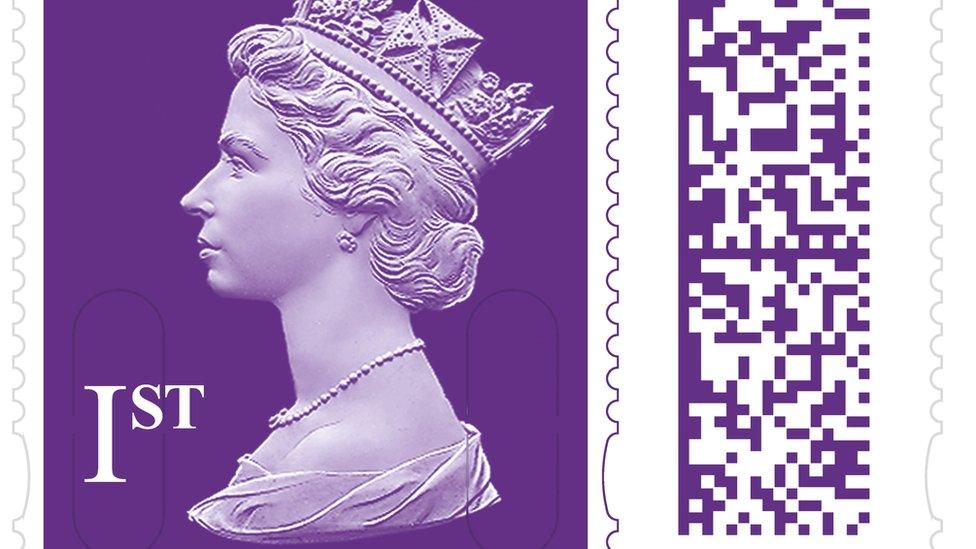Fake UK stamps blamed on Chinese-made counterfeits
- Published

The genuine stamp on the left is difficult to distinguish from the fake on the right
Fake stamps circulating in the UK are originating from China, a senior MP has told the BBC.
Reports suggest a rise in complaints that stamps bought from legitimate stores are being deemed counterfeit. Anyone who receives a letter with a fake stamp is charged £5 by Royal Mail.
Conservative MP Iain Duncan Smith told BBC Breakfast: "China is behind it."
A Royal Mail spokesman said: "We are working hard to remove counterfeit stamps from circulation."
Consumers are being warned to look out for strange perforations around the edge of a stamp, a shine to the surface or the colour looking off.
An investigation by the Daily Telegraph found, external that four Chinese companies had offered to print up to one million counterfeit stamps a week, with each stamp being sold for as little as 4p each before being sent to the UK.
The fakes have been found for sale on various websites, the paper said, and they were also bought by small retailers who did not realise they were counterfeit.
Alan Mendoza, from think tank the Henry Jackson Society, told BBC Breakfast: "We don't know the extent on whether the Chinese government are involved - but what we do know is that Chinese firms are involved."
Business Minister Kevin Hollinrake said: "It is key to prevent counterfeit stamps entering our supply chain in the UK.
"The Royal Mail must do everything possible to prevent counterfeits entering our circulation and must establish where they are coming from and how they are entering our marketplace."

Two letters that Christine sent incurred £5 fees
Christine told the BBC's Watchdog that she had bought eight stamps from the Post Office based inside her local convenience store
"I sent one to my son, and he sent me a message later in the month saying thank you, but unfortunately there was a £5 demand on the envelope," she said.
Another card sent to a friend's granddaughter also led to a £5 fee. "Because it was two of them that made me quite indignant," Christine said.
However, the chance of getting a counterfeit stamp is low, Royal Mail's director of external affairs and policy, David Gold, told Watchdog.
"People should understand that the overwhelming majority of stamps on sale are legitimate," he said.
"The number of [counterfeit] stamps that we are spotting account for less than 0.1% of the total stamps going through the network."
Barcoded stamps were introduced in 2022 to cut down on the sale of fakes and Mr Gold said this had reduced the number of counterfeits by 90%.
However, he admitted that even he struggled to spot a fake. "The reality is counterfeiters now are so good at what they do that even I... can't tell the difference just by looking at them."
A Royal Mail spokesman said: "We regularly monitor online marketplaces to detect suspicious activity, such as sales of heavily discounted stamps and work closely with retailers and law enforcement agencies to identify those who produce counterfeit stamps."
Tips to avoid buying fake stamps
Royal Mail suggests several ways to reduce the chances of ending up with fake stamps:
Beware of discounts: Online sellers promoting what appears to be a "too good to be true" offer might be selling counterfeits
Use well known shops: Buy stamps from a Royal Mail-approved outlet such as the Post Office, reputable High Street retailers or the Royal Mail website
Spot the signs: Counterfeits which can have an unusually shiny surface, unusual colouration or inaccurate perforations, but this is not always the case
Report it: If you suspect you have been a victim of stamp fraud complete the Royal Mail's online form, external or call the company's customer services team on 03457 740 740.

Have you come across fake stamps? You can get in touch by emailing haveyoursay@bbc.co.uk, external.
Please include a contact number if you are willing to speak to a BBC journalist. You can also get in touch in the following ways:
WhatsApp: +44 7756 165803
Tweet: @BBC_HaveYourSay, external
Please read our terms & conditions and privacy policy
If you are reading this page and can't see the form you will need to visit the mobile version of the BBC website to submit your question or comment or you can email us at HaveYourSay@bbc.co.uk, external. Please include your name, age and location with any submission.
Related topics
- Published1 February 2022
